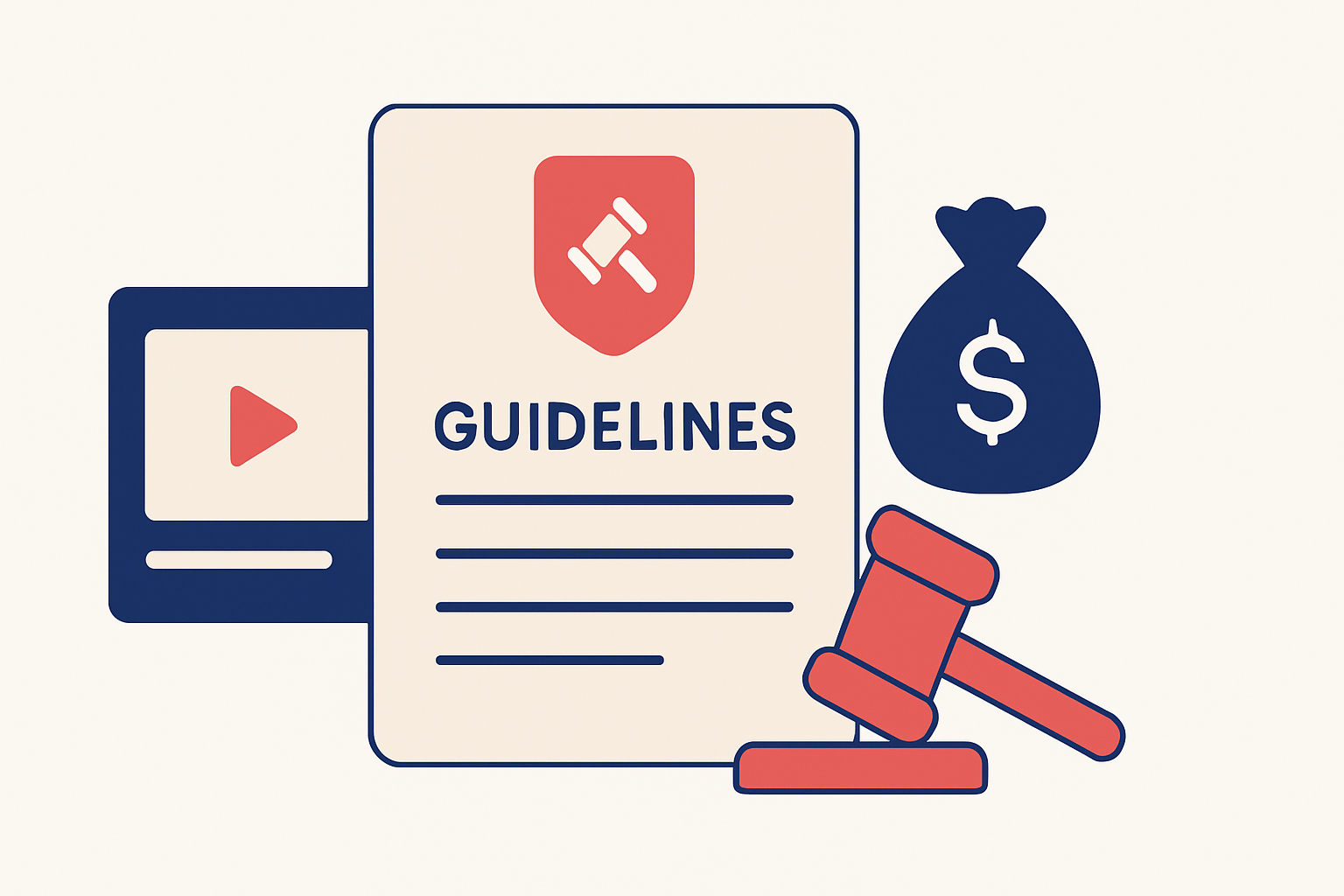Legal guidelines for crowdfunding projects

Crowdfunding has quickly become one of the most appealing ways for creative professionals and content publishers to finance new projects. By connecting directly with their audiences, creators can secure funding without relying on traditional investment sources. But while crowdfunding opens the door to new opportunities, it also comes with significant legal responsibilities. Ignoring these requirements can lead to compliance issues and, in serious cases, campaign failure.
For creators who want to move beyond fundraising and scale their projects into full-fledged apps, professional presentation is critical. Platforms like Audiorista help creators turn their work into polished content apps, building trust with supporters and ensuring reliable delivery. Audiorista’s no-code platform allows creators to transform their audio content into branded apps without technical expertise, supporting both audience engagement and monetization through subscriptions, in-app purchases, and advertising.
This guide breaks down the crowdfunding rules and compliance guidelines you must know, helping you make informed decisions for your content project.
Breaking down legal fundamentals
Before launching a campaign, it’s essential to understand the different types of crowdfunding and how the law treats them. Broadly speaking, there are three commonly used models:
- Reward-based crowdfunding: Backers contribute money in exchange for a specific reward related to the project, such as early access to content or merchandise.
- Donation-based crowdfunding: Contributions are made without any expectation of financial return or material reward, often used for cause-driven projects.
- Equity crowdfunding: Supporters receive a stake or share in the project or business, which is tightly regulated by financial authorities.
For content creators and publishers, understanding these distinctions is vital. Each model comes with a different set of legal obligations, from securities law in the case of equity crowdfunding to consumer protection and contract law in reward-based models. A strong grasp of these basics makes it easier to design campaigns that are both appealing and compliant from the start.
Establishing compliance guidelines
Legal frameworks surrounding crowdfunding campaigns extend beyond the type of funding model. Successful campaigns meet regulatory expectations by following these guidelines:
First, transparency is a foundational requirement. Creators are expected to provide accurate and complete information about what their project involves, how the funds will be used, and when contributors can expect results. Misrepresentation can lead to disputes, refunds, or even legal action.
Second, campaigns must include clear fundraising disclosures. These disclosures typically outline timelines for completion, risks involved, and communication channels for supporters. Such measures reduce misunderstandings and establish credibility with backers.
Third, intellectual property usage is a critical concern for content creators. Any use of media assets—such as imagery, audio, or video—must comply with copyright rules. Unauthorized use of content can expose campaigns to takedown requests or lawsuits, both of which can quickly derail a project. Taking the time to secure proper usage rights strengthens the campaign’s foundation and protects its creators.
Navigating campaign operations
Funding rules vary widely but generally revolve around three important areas: donor contribution limits, reporting expectations, and tax obligations.
Contribution limits exist in some jurisdictions to prevent excessive donations from single sources or to protect consumers from financial overexposure. Even in the absence of formal limits, creators should develop contribution structures that are straightforward and easy for supporters to understand.
Reporting expectations require creators to update backers regularly on the project’s status. Having clear reporting channels isn’t just a legal safeguard—it also demonstrates accountability. When donors feel informed, they’re more likely to maintain confidence. Audiorista supports creators in this area by providing tools for centralized communication, automated push notifications, and in-app updates, ensuring backers remain engaged and informed throughout the project lifecycle.
Tax obligations are another critical factor. Funds raised through crowdfunding are often considered taxable income, depending on jurisdiction and campaign model. Creators who ignore tax rules risk penalties later. By planning ahead and accounting for probable tax implications, campaigns can avoid unpleasant surprises.
Professional platforms like Audiorista further support compliance by helping creators centralize communication, manage updates, and deliver content directly through apps. When supporters know they’re engaging with a professional system, compliance and trust both become easier to maintain.
Handling legal challenges
Even with good preparation, creators can face challenges if they’re not diligent about compliance. Some of the most common legal issues include:
- Intellectual property disputes: Using protected material without authorization can escalate into serious legal conflicts.
- Misleading campaign descriptions: Overstated claims or unclear reward structures often invite legal scrutiny and backer dissatisfaction.
- Data protection requirements: Collecting and storing supporter information involves compliance with privacy regulations. Mishandling personal data exposes campaigns to liability. Audiorista helps mitigate these risks by offering secure user authentication, GDPR-compliant data handling, and privacy-focused app features.
Each of these risks demonstrates why legal preparation is as important as creative planning when it comes to crowdfunding campaigns.
Implementing best practices
While legal rules may seem complex, creators can take proactive steps to run compliant campaigns. Best practices include documenting campaign details, being transparent about risks, securing necessary intellectual property rights, and implementing strong data protection measures. Consistency in communication is also central to maintaining compliance and building long-term trust.
Delivering on promises made during the campaign is easier when creators use professional platforms to host and distribute their work. With content app tools, creators ensure that their backers have easy access to updates and finished projects, providing a level of reliability that strengthens trust in future campaigns as well.
Beyond delivery, proper planning is another cornerstone of compliance. Creators considering their first campaign should explore structured resources, such as the launching a content app checklist, which guides new projects from initial planning through legal and operational preparation. Following these structured checklists makes it much easier to avoid errors and uphold compliance standards throughout the campaign lifecycle.
By adopting these best practices, crowdfunding creators can present professional, trustworthy campaigns that are both compelling to supporters and aligned with regulatory frameworks.
Turn your creative vision into a trusted, professional app experience—launch your content app with Audiorista today.


